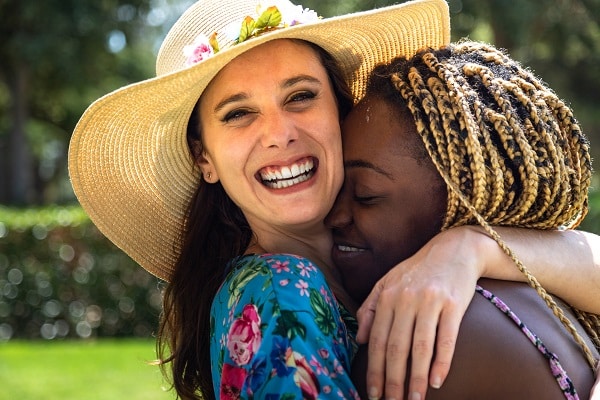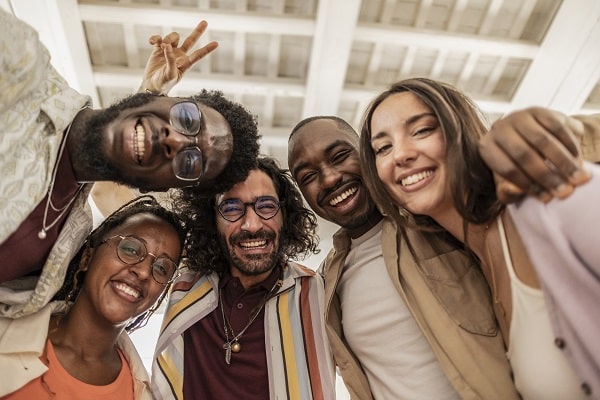In life’s journey, the golden years are often marked by reflections on past achievements, the wisdom gained, and the relationships nurtured along the way. Among these treasures, friendships stand out as crucial pillars supporting healthy aging. They enrich our lives with joy and companionship and significantly enhance our mental, emotional, and physical well-being. As we navigate the complexities of aging, the value of friendships cannot be overstated. This article delves into the multifaceted role of friendships in promoting healthy aging, shedding light on their psychological benefits, impact on physical health, cognitive function, and more while offering insights into fostering these invaluable connections in our later years.
Contents
- The Psychological Benefits of Friendships in Later Life
- The Impact of Friendships on Physical Health
- Friendships and Cognitive Function
- The Role of Technology in Sustaining Friendships
- Overcoming the Challenges of Making New Friends in Later Life
- The Importance of Friendships Across Generations
- Fostering a Community That Values Aging and Friendship
- Final Thoughts
- Related
The Psychological Benefits of Friendships in Later Life

Friendships in later life are a bastion against the tides of loneliness and isolation, which are common challenges many face as they age. The emotional support provided by friends can significantly reduce feelings of loneliness, depression, and anxiety, fostering a sense of belonging and security. Through shared experiences, laughter, and mutual understanding, friendships enrich the emotional landscape of older adults, contributing to enhanced mental well-being and a more positive outlook on life.
Moreover, strong social networks have been linked to increased self-esteem and happiness among the elderly. Engaging in social activities and maintaining meaningful relationships can increase satisfaction and contentment. The reciprocal nature of friendships ensures a shared joy in each other’s successes and a shoulder to lean on during tough times, highlighting the invaluable role of social connections in navigating the emotional challenges of aging.
The Impact of Friendships on Physical Health

Friendships nourish the soul and have profound effects on physical health. Social connections encourage the adoption of healthier lifestyles, from increased physical activity to better dietary choices. Friends often act as motivators and accountability partners, cheering each other on to stay active, whether by joining a walking group, participating in a dance class, or simply enjoying a stroll in the park together.
Furthermore, the social support provided by friends can lead to reduced stress levels, lower blood pressure, and a decreased risk of chronic diseases. Stress significantly affects physical health, including heart disease and a weakened immune system. The comfort and relaxation found in the company of friends can mitigate these effects, underscoring the importance of friendships in maintaining physical health as we age.
Friendships and Cognitive Function

Engaging in conversations and activities with friends provides crucial stimulation for preserving cognitive function in older adults. Regular social interaction can keep the mind sharp, enhance memory, and reduce the risk of cognitive decline, dementia, and Alzheimer’s disease. Through lively discussions, problem-solving in group activities, and learning new skills together, friendships provide mental exercise essential for cognitive health.
Additionally, the sense of belonging and purpose from being part of a social network can protect brain health. Feeling valued and needed can stimulate cognitive functions and encourage a more active, engaged lifestyle. This highlights the significance of nurturing friendships for the joy they bring and their contribution to maintaining cognitive agility in later life.
The Role of Technology in Sustaining Friendships

In today’s digital age, technology has become a pivotal tool in bridging the gap between friends, especially when face-to-face interactions are impossible. Online platforms, social media, and communication apps allow older adults to stay connected with friends and family, share experiences, and support each other from afar. This virtual connectedness can alleviate feelings of isolation and keep the elderly involved in the lives of their loved ones.
Moreover, technology enables participation in virtual activities and gatherings, offering new ways to engage with friends and pursue common interests. Whether it’s joining an online book club, attending a virtual concert, or participating in a group exercise class via video call, these digital venues provide opportunities for social interaction and camaraderie, demonstrating the adaptability of friendships in the face of technological advancements.
Overcoming the Challenges of Making New Friends in Later Life

Making new friends in later life can be daunting due to various barriers, such as mobility issues, health concerns, and the loss of traditional social networks. However, the desire for connection and companionship remains strong. Exploring new avenues for social engagement is essential, such as participating in community events, joining interest-based clubs, or volunteering. These activities open the door to meeting new people and enriching one’s life with purpose and joy.
Additionally, being open to friendships with individuals from different ages and backgrounds can broaden one’s social circle and perspective. Intergenerational friendships, in particular, offer unique benefits, providing fresh insights and the opportunity to share wisdom across age divides. Embracing the challenge of forming new friendships can lead to rewarding connections that enhance the quality of life in one’s golden years.
The Importance of Friendships Across Generations

Friendships that bridge the gap between generations can be particularly enriching, offering mutual benefits that extend beyond simple companionship. Older adults can offer wisdom, stability, and perspective gained through years of experience, while younger friends bring energy, fresh perspectives, and familiarity with new technologies and trends. These intergenerational relationships can foster understanding and respect between age groups, breaking down societal stereotypes and enriching the social fabric of communities.
Engaging with younger friends can inspire older adults to stay current with cultural and technological advancements, contributing to a sense of belonging in the rapidly evolving world. This exchange of knowledge and experience is mutually beneficial, promoting lifelong learning and personal growth. The vitality and different outlooks younger friends bring can invigorate older adults, challenging them to explore new ideas and activities, thus enhancing their overall well-being.
Fostering a Community That Values Aging and Friendship

Creating communities that value and support aging and friendship involves more than just providing social opportunities; it requires a culture that recognizes the integral role of social connections in healthy aging. Communities can foster this environment by designing spaces and programs that encourage interaction among residents of all ages and facilitate the formation and maintenance of friendships.
Community centers, parks, and local organizations can offer programs specifically tailored to older adults, such as social clubs, educational classes, and group fitness programs, which serve as excellent platforms for meeting peers with similar interests. Moreover, initiatives that promote volunteerism and civic engagement can provide meaningful ways for older adults to contribute to their communities while expanding their social networks. By prioritizing the development of age-friendly spaces and inclusive activities, communities can play a crucial role in enhancing the social lives of their elderly residents, thereby improving their overall quality of life.
Final Thoughts
The role of friendship in healthy aging is profound and multifaceted, impacting emotional well-being, physical health, cognitive function, and overall quality of life. As we navigate the later years, the value of nurturing old friendships and being open to forming new ones cannot be overstated. Technology offers innovative ways to maintain these connections, while community initiatives can provide the platforms necessary for social engagement. Though daunting, the challenge of making new friends in later life presents an opportunity for growth and enrichment. We can foster a more inclusive, understanding, and supportive society by embracing the benefits of friendships across generations. As we reflect on the aging journey, let us remember that friendships are a source of joy and a cornerstone of a healthy, fulfilled life.


